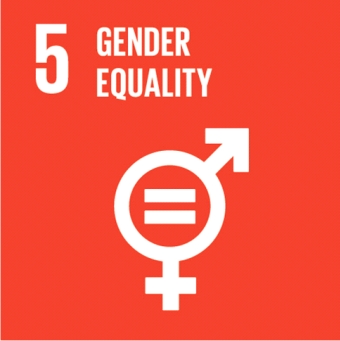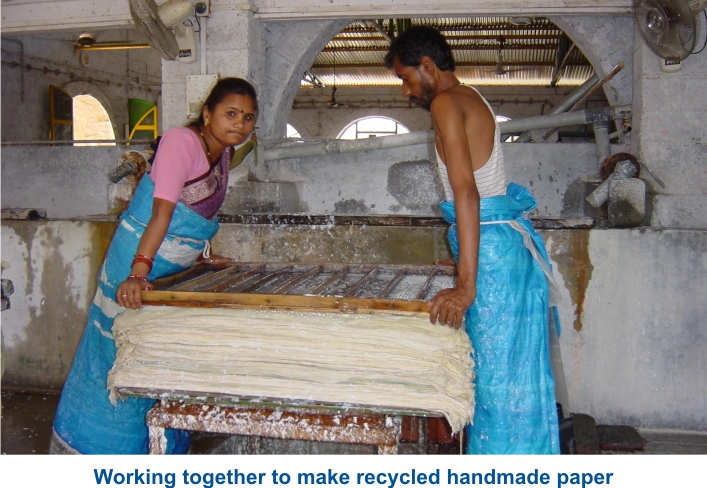Gender Equality: Too Trivial (ised)?
While India has committed to achieving Gender Equality by 2030 amongst 16 other Sustainable Development Goals, the long driven patriarchal culture in the country raises an important point. We as Indians need to decide whether we collectively wish for a gender equal society or is it a ‘western’ concept that we are happy to live without? The first in the trail of leading questions is what does the common Indian understand from terms like gender equality, feminism and women empowerment? There are some common myths that need to be pointed out:
MYTH 1: Women and men are at par with their
physical and mental strength
An incident where a woman is ridiculed for not being able to compete for a show of strength in arm wrestling with her guy friends or a typical gibe about how women can’t protect the borders upfront as part of the armed forces is quite common in an urban youth thought exchange on ‘gender equality’.
The important point is that people try to
compete with respect to their respective physical strength or mental
capacities. How commonly will you find two people competing to prove one as
more emotionally intelligent and mature? Hardly! What I am pointing out is
that our society has already assigned higher value to physical and mental
strength, where these are attributes usually associated with men. It doesn’t
take a mature person to realise the importance of the critical balance in
the physical-mental-emotional state of every human being. Robin Williams
from Dead Poets Society said: “Medicine, law, business, engineering are
noble pursuits and necessary for life. But poetry, beauty, romance, love,
these are what we stay alive for.”
I consciously want to skip the question on whether men and women are differently abled, whether physical and mental strength assigned to men on virtue of their sex is righteous. What is important to mention is that there are various factors like family, culture, child’s approach and exposure to a certain society amongst many others that lays the foundation of one’s choice of behaviours. Also, that gender is not static or immutable. Different societies assign different roles to different genders.
MYTH 2: Gender equality is a women’s issue
Men and women will commonly assume that ONLY women suffer from lack of access to resources, work opportunities, value to society and violence in gender-insensitive societies. It is high time to realise that the biggest lament of a man is that he is considered as the sole bread winner of the family. In India, the concept of house husbands is unimaginable in most parts of our society. A man is supposed to fit in, in a certain form of masculinity, primarily with regard to the built, the moustache, beard, etc in order to prove his manhood. Such pressure of being successful in their profession as well as the need for proven masculinity can aggravate tremendous pressure and anxiety. There is the entire identity of a man at stake and hence results in desperate actions of violence against the weaker opponent in order to feel the gaining back of masculinity. It is due to such pressure from society to prove themselves that there are more number of men attempting suicide than women.
A society nurturing gender equality is where access to resources to both the genders is equal and where opportunity to work or be care-takers of the household is not forced upon only one gender because of one’s sex.
What is stopping us to break these myths and move towards a gender equal society?
• It is entertaining
Some of the popular Bollywood songs objectifying women as items are enjoyed commonly by both men and women, perhaps because of entertaining beats and music. But the recent case of banning ‘Lipstick under my Burkha’ because of it being lady oriented is a classic case of infusing gender bias in a society. It is a way to lay the boundary for women's personalities that we are comfortable with in our society, beyond which is unacceptable.
• Gender works as a good subtle defense
Our society traces various examples of reasoning a certain viewpoint or action based on the gender of a person. For example, the recent tweets of ‘Poor Girl!’ or ‘Who polluted this young girls’ mind’ by eminent Indian personalities followed, post the recent campaign by Gurmehar Kaur, where she tried to raise the point that it’s war and not Pakistan who killed her father. Her idea was simple ‘Hate the sin, not the sinner.’ Many claim that she has been manipulated emotionally, being a young girl. There are many such cases where a woman is proven to be the culprit because of breaking the code like moving out in the night or men are proved to be guilt-free as it is natural for men to get violent on certain issues and there is nothing unjust about it. Such arguments only assign value of action based on what one is capable because of one’s sex is the biggest hurdle that we as a society have to cross to move towards gender equality.
• Rare theme where we are united by culture and religion
Society builds different expectations around the two genders by the virtue of its culture and religion. Access to resources to basic choices of visiting a health centre or bigger ones of choosing a life partner are biased against women. Women are seldom title owners to tracts of land which they cultivate. It is usually under their husband's names, ensuring they don't get access to credit (ToI, 2016). Less than 5 per cent of women in India have sole control over choosing their husbands, while around 80 per cent of women need permission to visit a health centre, according to the 2012 IHDS survey (HuffPost, 2017).
Most of the examples here show sparks of hope where women are striving to raise their voice and make their space in the economic and social roles played in a society. There are examples of women striving for power to encompass legal and informal rights, access to resources and pursuit of knowledge and personal goals and cut across most domains of human functioning, including familial, cultural and institutional domains.
The other battle is about power, referring to control over societal and household resources and decisions, cultural and religious ideology, and one's own and others' bodies. Men tend to have greater power than women. And this is where the second part of the story begins. It is important for men to claim their space of freedom - freedom from the pressure to perform professionally as the major contribution from men in raising a good family, to stand strong and masculine to protect one’s friends and family, to prove his masculinity by his dominance over women.
The pressure is what needs to be relieved, to make this movement comprehensive and meaningful for all. For India to achieve gender equality by 2030, it is important to look at gender from the lens of both men and women and make society more accepting of all kinds of professional and personal choices that people make irrespective of their gender.■
Anshul S Bhamra
abhamra@devalt.org
References:
1. Times of India, 2017, “Women not prioritised for farm credit”
2. Garg Lavanya, 2017, HuffPost, “ Only 5% Of Women In India Choose Their
Husbands, 80% Need Permission To Visit A Health Centre”
3. Ministry of Health and Family Welfare, 2005, “Gender Equality and Women
Empowerment in India”